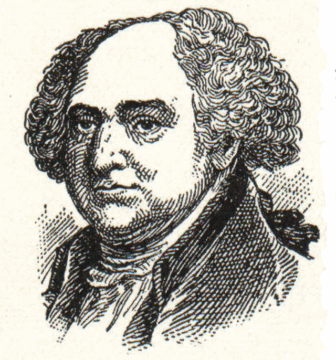by Michael Liss
Ay! I am fairly out and you fairly in! See which one of us will be happiest! —George Washington to John Adams, March 4, 1797

No one in American history has ever known better how and when to make an exit than George Washington. Just two days before Washington left for the figs and vines of Mount Vernon, the Revolutionary Directory of France issued a decree authorizing French warships to seize neutral American vessels on the open seas. There was a bit of tit-for-tat in this—in 1795, America had negotiated the Jay Treaty to resolve certain post-Independence issues between it and the British, including navigation without interference. But France was at war with England, and, while France wasn’t necessarily looking to shoot it out with the Americans, it did want to disrupt trade. Adams moved quickly to prepare the country, but the French were on a war footing, the Americans were not, and, by the end of 1797, roughly 300 American merchant ships with their supplies and crews had been taken. This was the so-called “Quasi-War.” Adams was deft with diplomacy—he sent a team to Paris to negotiate an end to the open hostilities, but they (supposedly) were met with demands for large bribes as a predicate for discussions (the “XYZ Affair“). The country seethed.
We Americans love to say that “politics stop at the water’s edge,” but it is kind of a comforting lie. Politics almost never stop, water’s edge or not, and that was certainly true in the Spring of 1798. Federalists prepared for war, pointing out the obvious—France didn’t exactly look like a friend. Democratic-Republicans claimed Federalists were manipulating the situation as a pretext to centralize power in their own hands, and to drive a wedge between America and its sister nation, Revolutionary France.
Of course, they were both at least a little right. America was trying to figure it all out. Beyond the bigger conflicts with Europe, there was something interesting at this moment going on in American politics. Politicians and voters were adding political identities, along with their regional and state-level ones. They were further sorting themselves into temperaments and teams inside the Federalist and Democratic-Republican Parties—so it was not just two combatants, but several, across a spectrum. It was all so new. In just a generation, we had gone from being 13 colonies, to being loosely tied States under the Articles of Confederation, to having a federal government with real authority. A lot of Americans, including those in elected office, didn’t really know how conflicts would be resolved between the individual and his State, his State and the federal government, or among the federal government’s three branches. The one thing that was not new was human nature—the tendency to remember the convenient, to fill the space of ignorance with self-interest, to believe in one’s own “rightness,” and to thirst for power. Read more »
